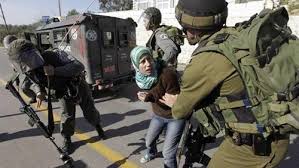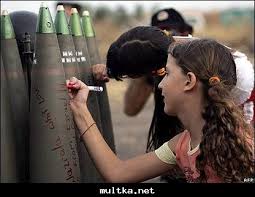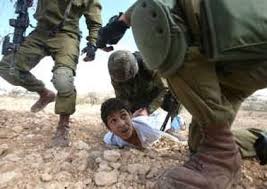He is the honorable Companion Abu Hurayrah, May Allaah Be Pleased with him. Before embracing Islam, he was called ‘Abd Shams (slave of the sun). After he embraced Islam, the Prophet, sallallaahu ‘alayhi wa sallam, called him ‘Abdul-Rahmaan (Slave of The Most-Merciful) and gave him the nickname of Abu Hurayrah (the father of a kitten). There is a humorous reason behind this nickname. ‘Abdul-Rahmaan, May Allaah Be Pleased with him, was famous for being humane to animals and he had a kitten that he was kind to and he took care of it. It used to accompany him everywhere. Therefore, he was called Abu Hurayrah. The Messenger of Allaah, sallallaahu ‘alayhi wa sallam, used to address him using this nickname. It was narrated in a Hadeeth that the Prophet, sallallaahu ‘alayhi wa sallam, said to him: “Come here, O Abu Hurayrah!” [Al-Bukhaari]
Abu Hurayrah, May Allaah Be Pleased with him, was born in the tribe of Daws, an Arabian tribe. He reverted to Islam in the year of conquering Khaybar in 7 A.H. After embracing Islam, he used to accompany the Prophet, sallallaahu ‘alayhi wa sallam, and sit with him for long periods of time learning from him.
Abu Hurayrah, May Allaah Be Pleased with him, tried many times to invite his mother to Islam, but she refused.
One day, he invited her to Islam, but she refused and said bad words about the Prophet, sallallaahu ‘alayhi wa sallam. Consequently, Abu Hurayrah, May Allaah Be Pleased with him, went to the Prophet, sallallaahu ‘alayhi wa sallam, weeping and said, “O Messenger of Allaah!I called my mother to Islam but she turned down my call. I called her today but she said things about you that I hated to hear. Supplicate Allaah to Guide the mother of Abu Hurayrah.” The Messenger of Allaah, sallallaahu ‘alayhi wa sallam, said, “O Allaah! Guide the mother of Abu Hurayrah to the right path.” I left, feeling optimistic because of the supplication of the Messenger of Allaah, sallallaahu ‘alayhi wa sallam.
When I came near the door it was closed from within. My mother heard the sound of my footsteps, and said, “O Abu Hurayrah! Wait! ” I heard the sound of water. She took a bath and put on a shirt and was too hasty to put on her head cover, then opened the door and said, “O Abu Hurayrah! I testify that there is none worthy of worship but Allaah and that Muhammad is His slave and Messenger.” Abu Hurayrah added, “I went back to the Messenger of Allaah, sallallaahu ‘alayhi wa sallam, shedding tears of joy. I said, ‘O Messenger of Allaah! Be happy, for Allaah has answered your supplication and guided the mother of Abu Hurayrah to the right path.’ The Prophet, sallallaahu ‘alayhi wa sallam, praised Allaah, and lauded Him, and said good words.
I said, ‘O Messenger of Allaah! Supplicate Allaah for me and my mother to be loved by His believing slaves and for us to love them too.’ The Messenger of Allaah, sallallaahu ‘alayhi wa sallam, said, ‘O Allaah! Make this slave of Yours and his mother (i.e. Abu Hurayrah and his mother) loved by Your believing slaves and make them love Your believing slaves.’ This supplication has been answered by Allaah The Almighty so much that any believer who heard about me loved me.” [Muslim]
Abu Hurayrah, May Allaah Be Pleased with him, used to like fighting in the Cause of Allaah. He joined the battles, attended sessions of knowledge and accompanied the Prophet, sallallaahu ‘alayhi wa sallam. He was the most attached Companion to the Prophet, sallallaahu ‘alayhi wa sallam. Compared to other Companions, Abu Hurayrah, May Allaah Be Pleased with him, memorized the highest number of narrated Hadeeths from the Prophet, sallallaahu ‘alayhi wa sallam. One of the Companions said about him, “Abu Hurayrah narrated a lot of Hadeeths and the Muhaajiroon and the Ansaar did not narrate like him.” He used to reply to this saying, “My brothers among the Ansaar were busy with farming their lands and my brothers among the Muhaajiroon were busy with trading. I used to serve the Messenger of Allaah, sallallaahu ‘alayhi wa sallam, in return for what would fill my stomach. So, I witness any situation if they are absent and memorize if they forget. The Prophet, sallallaahu ‘alayhi wa sallam, said, ‘Whoever will spread his upper garment until I finish my speech and then fold it, (i.e. wrap it over his body), he will never forget anything he had heard from me.’ So, I spread the garment which I was wearing, and by Him Who sent Muhammad with the Truth (i.e. Allaah), ever since, I have never forgotten whatever I heard from him (the Prophet, sallallaahu ‘alayhi wa sallam).” [Muslim] He also said, “Had it not been for two revealed verses in the Book of Allaah, I would never have narrated anything. Allaah The Almighty Says (what means): {Indeed, those who conceal what We Sent down of clear proofs and guidance after We Made it clear for the people in the Scripture - those are cursed by Allaah and cursed by those who curse,* Except for those who repent and correct themselves and make evident [what they concealed]. Those - I Will Accept their repentance, and I Am The Accepting of repentance, The Merciful.} [Quran 2:159-160]”
Abu Hurayrah, May Allaah Be Pleased with him, had an excellent memory and he was able to quickly memorize and did not forget. Ash-Shaafi‘i, May Allaah Have Mercy upon him, said about him, “He is the person who memorized the most Hadeeth in his time.” Abu Hurayrah, May Allaah Be Pleased with him, said about himself, “No one knows the Hadeeths of the Prophet, sallallaahu 'alayhi wa sallam, more than me except Abdullaah ibn ‘Amr, for he used to write them and I did not.”
He liked knowledge and his students used to visit him until there would be no space left in his home. He was highly esteemed for his knowledge. One day, he stretched out his legs and said, “We entered the home of the Messenger of Allaah, sallallaahu ‘alayhi wa sallam, until we filled the home while he was reclining on his side. When he saw us he bent his legs and said, ‘After me, there will be people coming to you seeking knowledge. So, welcome, greet and teach them.’” [Ibn Maajah]
Abu Hurayrah, May Allaah Be Pleased with him, was extremely poor and he used to tie a stone on his stomach due to extreme hunger. Abu Hurayrah, May Allaah Be Pleased with him, said:
By Allaah! I used to lay (asleep) on the ground on my liver (abdomen) because of hunger, and (sometimes) I would bind a stone over my belly because of hunger. One day, I sat by the way where people used to walk. When Abu Bakr, May Allaah be pleased with him, passed by, I asked him about a verse in the Noble Quran and my only purpose in asking him was that he might satisfy my hunger, but he passed by and did not do so. Then ‘Umar, May Allaah be pleased with him, passed by and I asked him about a verse in the Noble Quran, and my only purpose in asking him was that he might satisfy my hunger, but he passed by without doing so. Finally, Abul-Qaasim (the Prophet, sallallaahu ‘alayhi wa sallam) passed by and knew from my face (that I was hungry). He said, “O Abu Hurayrah!” I replied, “Yes, O Messenger of Allaah!” He said to me, “Follow me.” He left and I followed him. Then he entered the house and I asked permission to enter and was admitted. He found milk in a bowl and said, “From where is this milk?” They said, “It has been granted to you by such-and-such man (or by such and such family).” He said, "O Abu Hirr!" I said, "Yes, O Messenger of Allaah!” He said, “Go and call the people of Suffah to me.” The people of Suffah were the guests of Islam who had no families, nor money, nor anybody to depend upon, and whenever an object of charity was brought to the Messenger of Allaah, sallallaahu ‘alayhi wa sallam, he would send it to them and would not take anything from it, and whenever any present was given to him, he used to send some for them and take some of it for himself. This made me sad, as I hoped to have a little of this milk in order to have strength for the rest of the day. When the people came I gave them some of this milk. I was wondering what would remain of that milk for me, but anyway, I could only obey Allaah and His Messenger, so I went to the people of Suffah and called them, and they came and asked for the Prophet's, sallallaahu ‘alayhi wa sallam, permission to enter. They were admitted and took their seats in the house. The Prophet, sallallaahu ‘alayhi wa sallam, said, “O Abu-Hirr!” I said, “Yes, O Messenger of Allaah!” He said, “Take it and give it to them." So I took the bowl (of milk) and started giving it to each man who drank his fill and returned it to me until finally the whole group had drunk their fill. I then placed the bowl between the hands of the Prophet, sallallaahu ‘alayhi wa sallam, and there was still milk remaining, so he raised his head, looked at me, smiled and said. "O Abu Hirr!" I replied, “Yes, O Messenger of Allaah!” He said, “(Only) you and I remain." I said, "You have said the truth, O Messenger of Allaah." He said, "Sit down and drink." I sat down and drank. He said, "Drink," and I drank. He kept on telling me repeatedly to drink, until I said, "No. By Allaah Who Sent you with the truth, I have no space for it (in my stomach).” He said, “Hand it over to me.” When I gave him the bowl, he drank the remaining milk. [Al-Bukhaari]
Allaah The Almighty honored Abu Hurayrah because of his faith and sincerity to Allaah and His Messenger, sallallaahu ‘alayhi wa sallam. He married the lady whom he used to work for before he accepted Islam. In this regard, he said, “I was raised as an orphan, I migrated as a poor man and I was a hired worker for Busrah bint Ghazwaan in return for my food. I used to serve them when they camped and walked holding the reins of their riding animals if they moved. All praise is due to Allaah Who made religion a means for rectifying and made Abu Hurayrah Imaam.”
During the caliphate of ‘Umar ibn Al-Khattaab, May Allaah be pleased with him, Abu Hurayrah, May Allaah be pleased with him, was appointed as a ruler of Bahrain. He was also the vice-ruler of Al-Madeenah when Marawaan ibn Al-Hakam was the ruler. However, he used to carry firewood and sell it in the market.
He used to advise people enjoining them to do good and forbidding them from evil. Once, he was passing by the market, and he saw people preoccupied with the worldly life. So, he stood in the middle of the market and shouted, “O people, the inheritance of the Prophet, sallallaahu ‘alayhi wa sallam, is divided while you are here! Why do you not go and take your shares?” They asked him, “Where is that?” He answered, “In the mosque.” The people rushed to the mosque and then returned. He asked them, “Why have you come back?” They said, “O Abu Hurayrah! We entered the mosque and did not see anything that is divided.” He asked them, “What did you see?” They replied, “We saw some people praying, others reciting the Quran and others studying what is lawful and what is unlawful.” Abu Hurayrah, May Allaah be pleased with him, said, “This is the inheritance of Muhammad.”
He did not seek in the worldly life anything but the pleasure of Allaah and the love of His Muslim slaves until his death. When he was dying, he cried of longing for his Lord. When he was asked about the reason for his tears, he said, “because of the little provision and the long journey.” He also said, “O Allaah, I like meeting You, so, like meeting me!” He died in 59 A.H. and it was said in 57 A.H. and his age was 78 years. He was buried at Al-Baqee‘ after spreading knowledge throughout the land and narrating more than 5000 Hadeeths. May Allaah Be Pleased with him!









